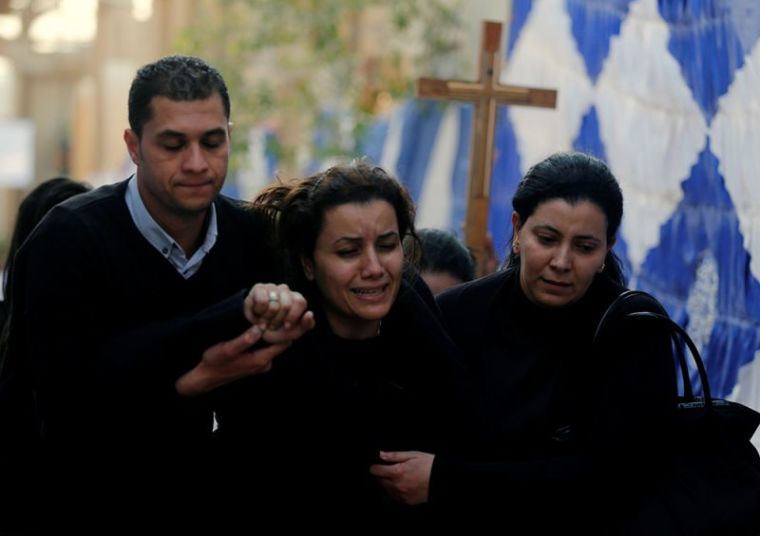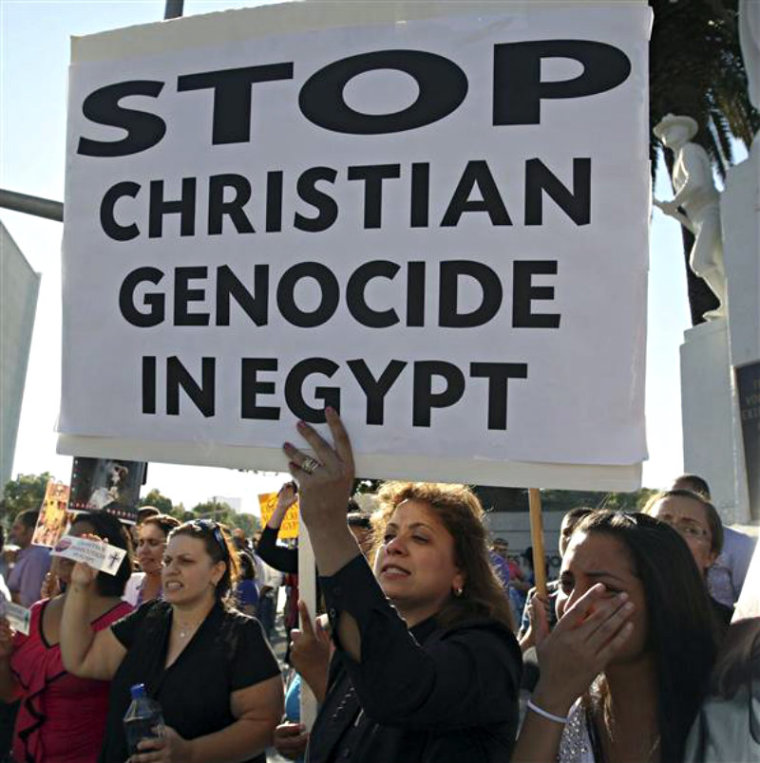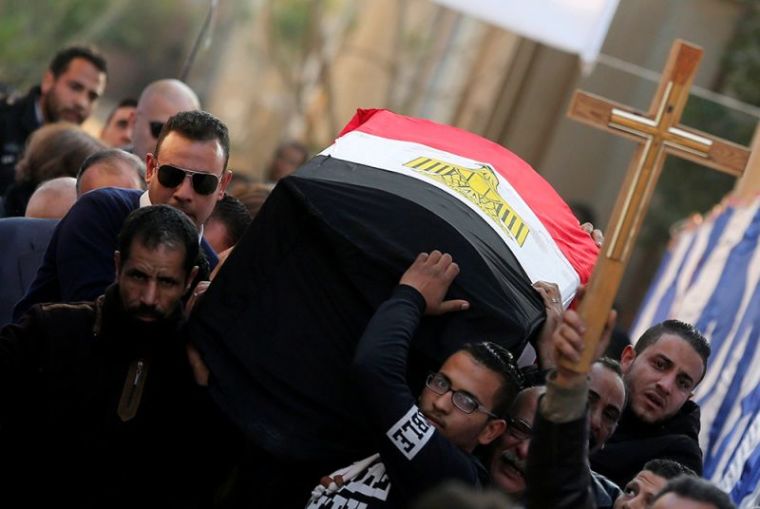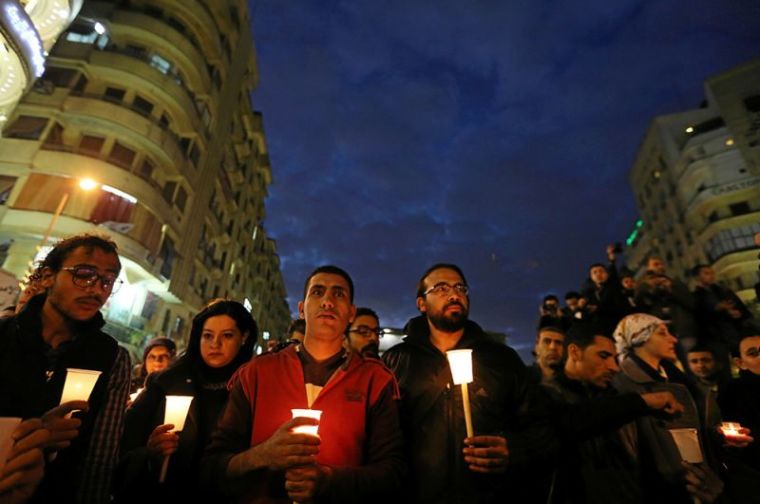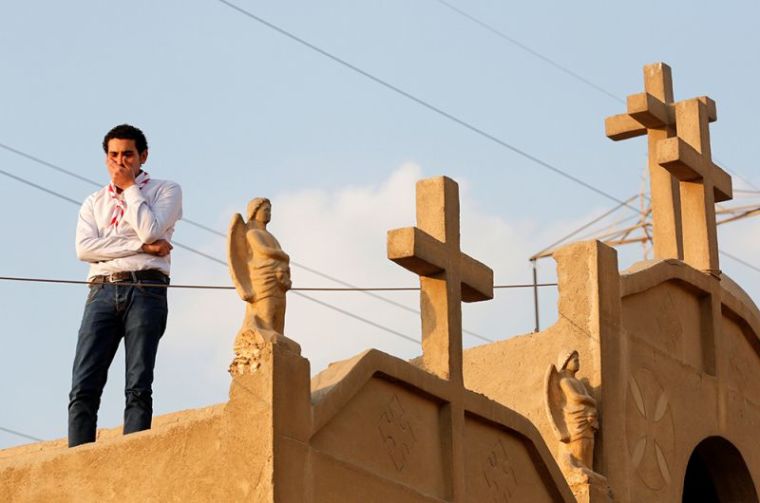5 Coptic Christians Brutally Murdered in Egypt, Bodies Found With Throats Slashed
Five Coptic Christians have been brutally murdered and had their throats slashed in four different incidents in Egypt over a two-week timespan, a persecution watchdog group reports.
As it has been reported that four Coptic Christians have been murdered during the first two weeks of 2017, the body of a fifth slain Copt was found last Monday.
According to World Watch Monitor, the body of 37-year-old married father of two, Ishak Ibrahim Fayez Younan, was discovered in his Cairo residence by his brother on Jan. 16.
Reports indicate that Ishak, who worked at a soda factory in Cairo for the last 13 years, had his throat slashed while he was in an apartment he rented. His wife and other family members live in their permanent residence in a village in Upper Egypt.
While police believe robbery might have been the motive, no valuables were taken by the assailants who killed Ishak.
Magdy Younan, the victim's brother, told World Watch Monitor that Ishak had recently returned to Cairo for work after going back home to celebrate the Coptic Christmas holiday with his family and to attend a wedding.
"It was his first visit to the family in two months," Younan explained.
Ishak returned to Cairo on Jan. 12 and his wife called him on Jan. 13 to make sure that he had returned safely to Cairo. That was the last time Ishak ever spoke with his wife, Younan said.
Even though Ishak's wife had tried to call him each of the following three days, there was no answer.
"She was very worried about him because it was the first time they hadn't spoken for that long," Younan explained.
Ishak had only been back in Cairo for about four days before his slain body was discovered by his brother and brother-in-law who were asked to go check on him.
"I headed to Ishak's flat with our brother-in-law," Younan said. "When we got there, the door was locked. We knocked loudly but no one answered."
The men then went to the factory where Ishak worked and were told by his co-workers that he had not returned to work since he took off on his Christmas holiday. Younan and the brother-in-law became increasingly worried.
"We went back to his flat and managed to open the door," Younan said. "We found Ishak's body lying in a pool of blood. He had a large wound at his throat."
"There was no sign of a struggle — everything was in its place. ... His wallet was still in his pocket with 400 Egyptian pounds [$21] in it," he added. "The murderer didn't steal his money or anything from the flat, which indicates that the motive was not theft."
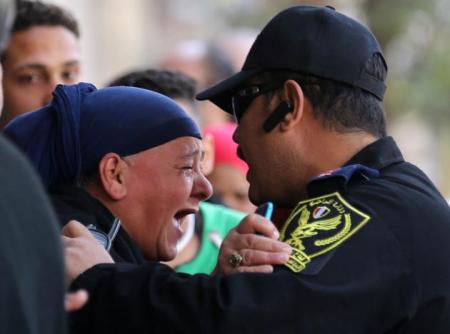
Ishak's family is distraught and perplexed by his murder. Younan said he couldn't think of anyone who would want to harm his brother.
"My brother had no enemies; he was a very simple man, and peaceful," Younan said. "He left his wife and children to work in Cairo to support them. His family will now face difficulties as he was the primary bread-winner."
Ishak's murder comes after 35-year-old Coptic surgeon Bassam Safwat Atta, a married father of two, was also found dead with his throat slit in his residence in Upper Egypt on Jan. 13.
Much like in the case of Ishak, there was no sign that whoever murdered Atta had taken any valuables from the residence.
"There wasn't any sign of violent struggle in the apartment," neighbor Mokhles Nage, a fellow Christian, told World Watch Monitor. "Everything was in its place and nothing was missing, including money and Bassam's wife's jewellery."
Prior to Atta's death, 60-year-old Coptic Christian Gamal Sami and his 48-year-old wife, Nadia, were discovered dead in their beds in northern Egypt on Jan. 6, on the Coptic Christmas holiday. Both Gamal and Nadia had their throats slit.
In this case, the authorities also claimed that robbery was the motive. But like the aforementioned cases, no valuables were taken from the home.
"According to Nadia Sami's brother, no valuables had been taken from their home and they had been killed because of their faith," A world World Watch Monitor report states. "Although the police are keen not to label the incidents as sectarian and claimed the couple had died in a robbery, Copts have been terrified by the nature of the killings and believe the victims were singled out because of their faith."
On Jan. 3, a Coptic Christian store owner in Alexandria named Youssef Lamei was murdered by a Muslim man who confessed to killing Lamei because he objected to the fact that he sold alcohol in his store. According to reports, Lamei's throat was slashed twice from behind while he was smoking hookah outside of his store.
The suspect in Lamei's death was arrested after he was found hiding in a building near Al-Montazah police station.
According to Open Doors USA's 2017 World Watch List, Egypt ranks as the 21st worst nation in the world when it comes to the level of Christian persecution.
In fact, some Christian residents in Egypt feel as though they are second-class citizens.
"We can walk freely without fear of persecution, but the feeling is that when it comes to the freedom of religious worship we aren't equal citizens," a Christian resident of Cairo named Majdi told Breitbart. "We feel compelled to apologize for being Coptic Christians and feel uncomfortable to ask to pray in a church."









